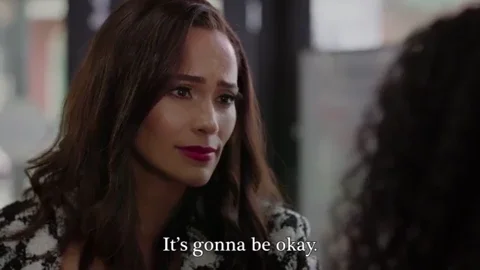Imagine this conversation...
After a home cooked meal, your partner says to you:
I always have to do the dishes and clean the kitchen after our meals. Every day I'm just cleaning up!
You respond:
Are you accusing me of never helping? I work all day and I come back home to this conversation?

This conversation isn't going anywhere!

There's a way to tackle this communication problem in your relationship: empathic listening.
Using negotiation expert William Ury's 4 steps of empathic listening, you and your partner will be able to solve relationship problems in a more respectful and productive way.
What is empathic listening?
It's when we listen from the other party's frame of reference.
This means you try to understand the other person's point of view.

Empathic listening can help improve your relationship because:
You listen with the intent to understand — not the intent to reply. You aim to understand what emotions the other person is coming with and what they're feeling.
It's one of the best ways to show people love. One of the greatest gifts is the gift of being heard.
Empathic listening can be challenging, though!
There's so much going on in our world and our minds are filled with noise.
Many things compete for our attention, which is distracting.
William Ury's 4 steps to improve empathic listening

Clear your mind.
➡️ Take a few deep breaths to calm yourself.
➡️ Listen to yourself and listen to your body.
Notice any tension in your muscles, or body changes — cheeks heating up, sweating hands, heart beating faster, tense shoulders, etc.
Notice how you're feeling — scared? angry? excited? shocked?
What's your body position like?
Listen from their frame of reference.
➡️ Listen to your partner's tone of voice and word choice.
What are their underlying emotions?
What can you understand about their feelings?
Rephrase what the speaker said and reflect on their feelings.
➡️ Say what you heard from the speaker and capture their emotions.
"You seem/sound ______ (emotion)."
"It seems/sounds like ______."
Let them know that you're here for them.
➡️ You can ask them...
“What can I do for you?”
“That sounds really hard.”
“How can I best support you?”
“What do you need right now?”
Revisit the dinner conversation
 After a home cooked meal, your partner says to you:
After a home cooked meal, your partner says to you:
I always have to do the dishes and clean the kitchen after our meals. Every day I'm just cleaning up!
Here is an example of what each step could look/feel/sound like:
Clear your mind.
I'm feeling that my hands are tense. I feel attacked and misunderstood. I need to take some deep breaths before I do anything else.
Listen from their frame of reference.
Listening to my partner's response, I can feel that they're tired and low on energy.
Rephrase what they said and reflect on their feelings.
It sounds like you're tired of cleaning after our meals. You feel like you do it every day.
Let them know that you're here for them.
I know you're going through a lot. Let me help you do the dishes.
Try an example!

After a day at school, your partner tells you, "I don't want to hang out today. I know we were supposed to go to the park, but I just want to go home by myself."
How can you respond empathically?
Option A: You seem to want some time alone right now. How can I best support you?
Option B: You sound like you want to do some work without me. Can I join you still?
Option C: Are you hungry? Is that why you're going home? To eat?
Option D: That's totally fine, I'll give you alone time at the park.
Quiz
Which is the most empathic response?
Take Action
 Photo by Korney Violin on Unsplash
Photo by Korney Violin on UnsplashStart using the 4 steps to improve your relationship through empathic listening!
Your feedback matters to us.
This Byte helped me better understand the topic.








